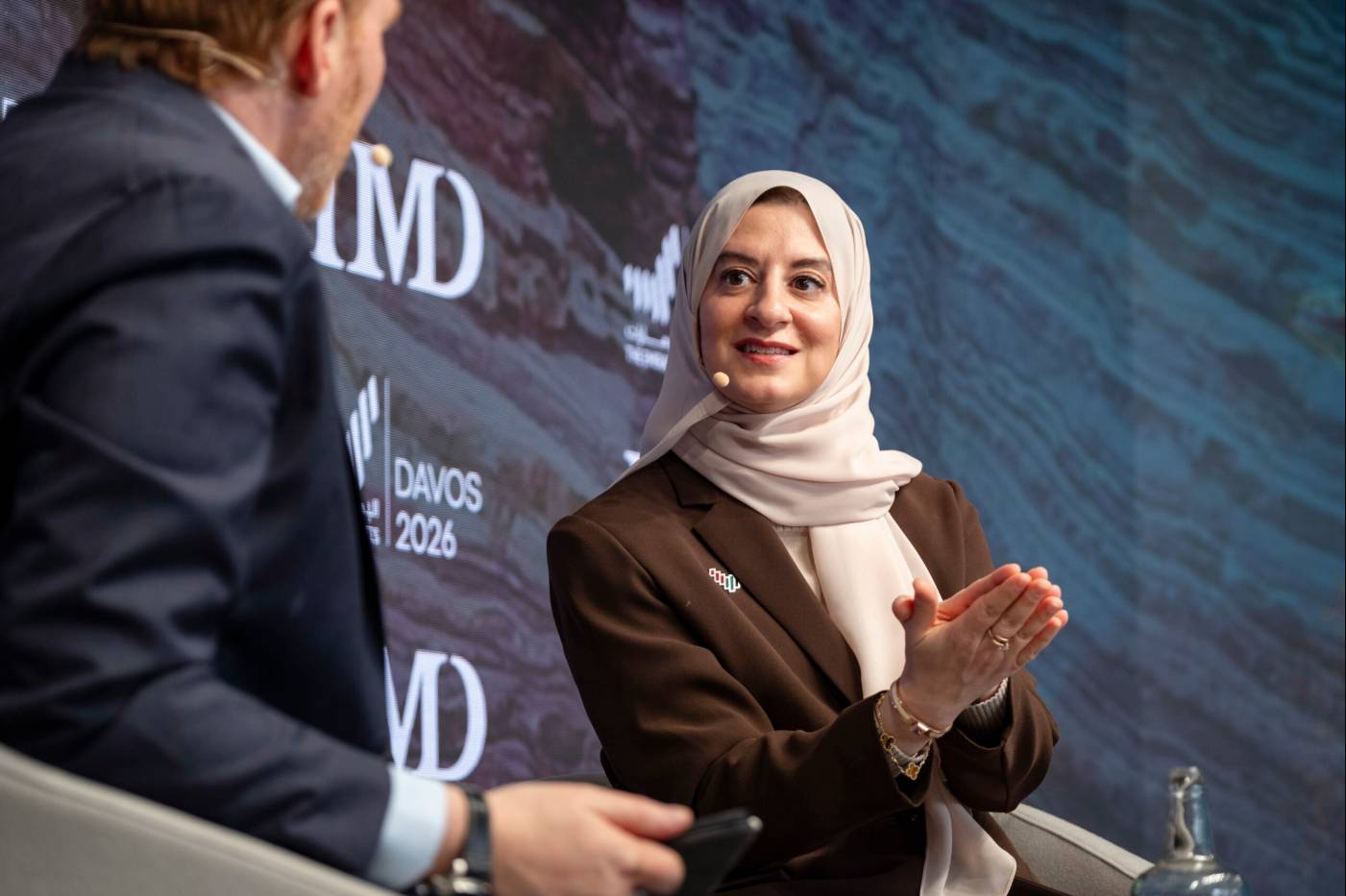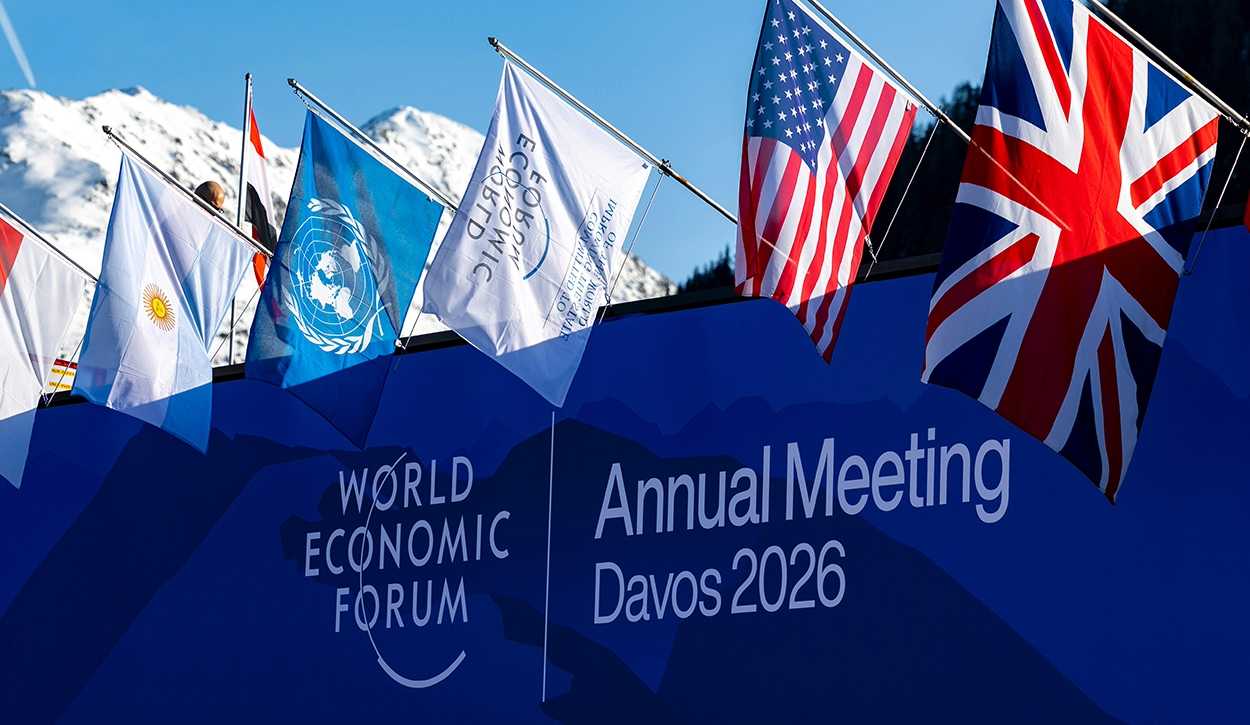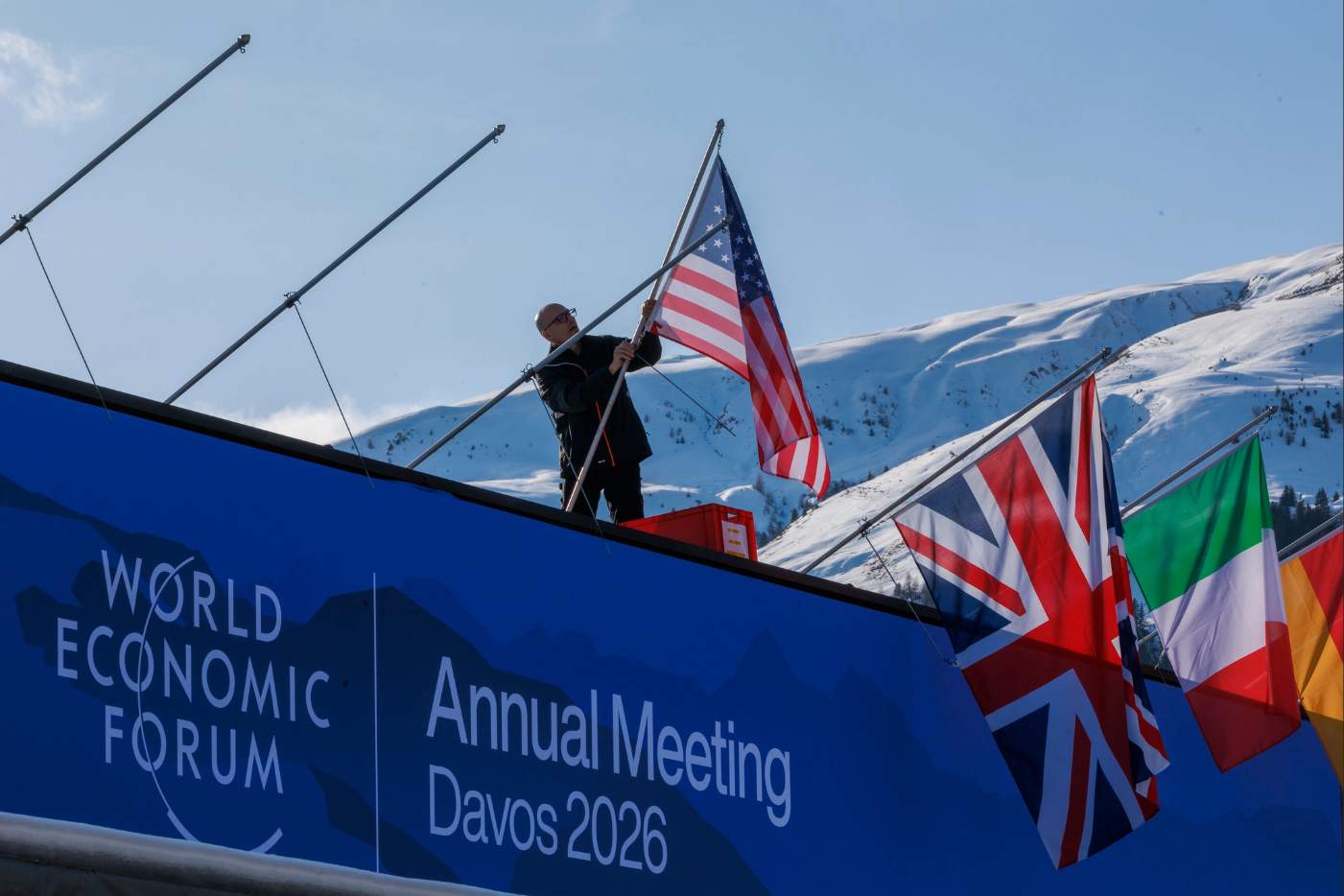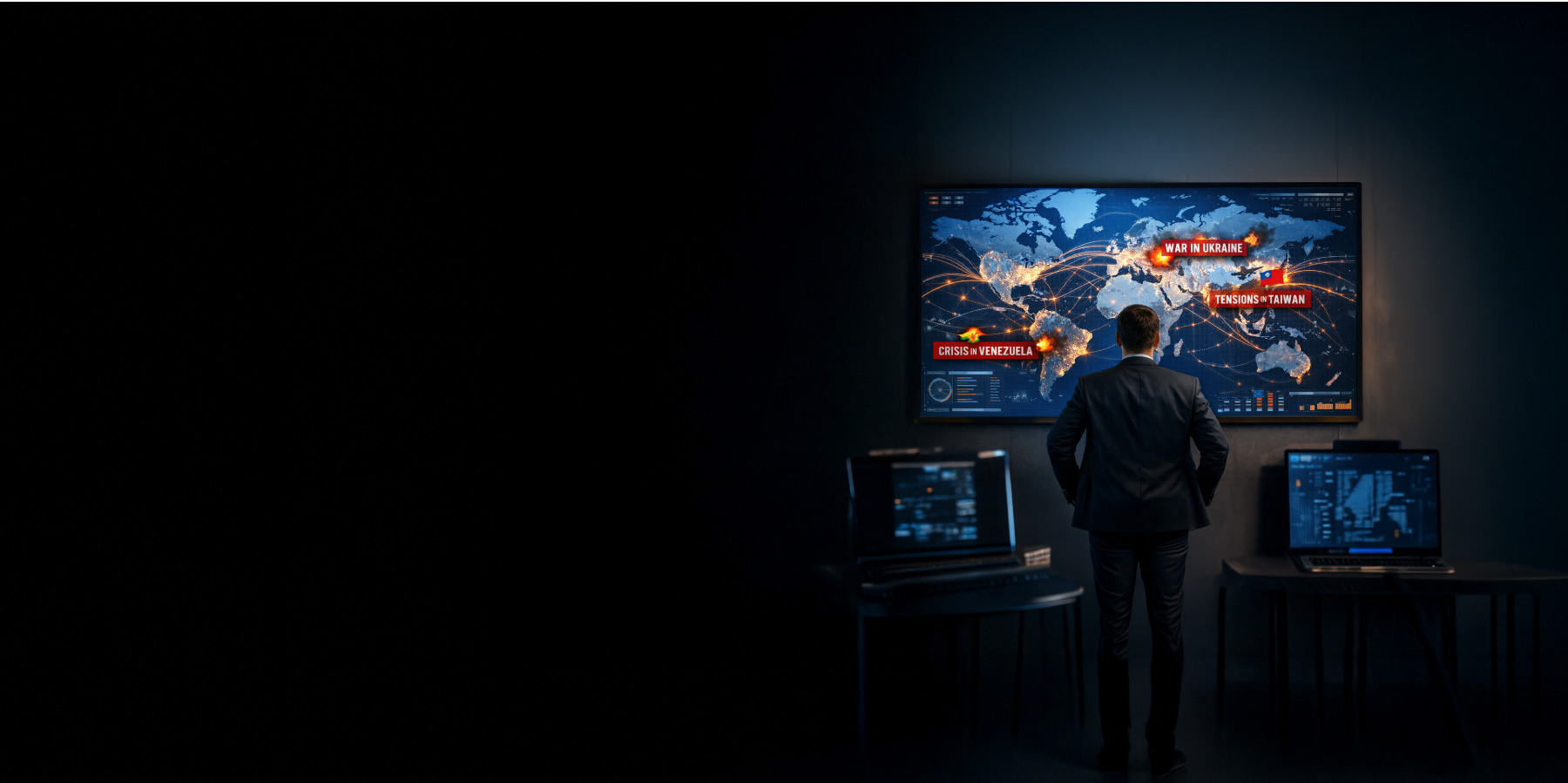
Optimism as strategy
Countries building ecosystems where government vision, business innovation, and investor confidence reinforce each other to gain competitive advantage through strategic optimism. ...
June 26, 2025 • by Ngozi Okonjo-Iweala in Geopolitics
Faced with the threat of trade fragmentation, many are now waking up to the true value of preserving a rules-based system of cooperation – and business can help defend it too, says...
There can be no doubt that we are living in worrying times. The geopolitical mess we are in today, amid the largest disruption to trade policies since the Second World War, creates a very tough environment. The threat to the WTO’s rules-based, multilateral system that has underpinned global trade, globalization, and shared prosperity is very real: we cannot hide from the fact that faith in free trade is fading.
The chaotic tariff policies of 2025 and a shift to unilateralism have disrupted the stability and predictability of a trade system that all businesses and economies rely on. This has led the WTO to downgrade predictions for global goods trade growth this year from 2.7% to near stagnation. Conditions could get even worse, depending on how tariff tensions play out – and how the conflict in the Middle East develops. That risk does not bode well for decision-making in business nor for future economic prosperity, especially in developing nations.
However, it is my firm belief that, despite this near-term turbulence, there are good reasons to be optimistic. It is vital that we do not get lost in a negative, sensationalized narrative that leads to further trade fragmentation and even more damaging disregard for WTO rules. The current challenges are significant, but they contain opportunities to place global growth and the WTO on a firmer footing. For all the downside risks, there are upside risks too – by bolstering cooperation and reducing uncertainty, we can lift growth and prosperity.
Now, the middle powers are looking to collaborate on plurilateral agreements to ensure trade can continue on safe ground, for example.
While we await the outcome of the current wave of tariff tensions, let’s remember that 87% of world goods trade does not directly go to or come from the United States – and three-quarters of that large majority of trade is taking place under WTO rules.
What does this tell us? Well, what I call the “middle powers” want and need a system of predictable, stable rules based on mutual cooperation and solid agreements between countries and regions.
While a few might want to pursue economic nationalism and unilateralism, the silent majority is waking up to the value of the WTO-governed system and to understand that it is worth fighting for. Perhaps we have taken it for granted for too long and lost sight of its worth. Now, the middle powers are looking to collaborate on plurilateral agreements to ensure trade can continue on safe ground, for example.
We should also remember that the global trade system is extremely resilient and agile. We not only survived the challenges of the financial crash of 2008/9 and the COVID-19 pandemic, but we also helped nations respond and recover. In these and other troubled times, the private sector has been our advocate and partner in finding solutions and creating opportunities.

Today is no different. Business leaders can – and must – play their part in speaking out. If business values the certainty that WTO rules and agreements bring, it’s vital for executives to become ambassadors for that system. This means, at a simple level, lobbying national and regional policymakers in support of the WTO and the global trading system.
It’s also easy to forget that there is more to the WTO and world trade than tariffs. I call this BT – beyond tariffs. The WTO is responsible for a range of agreements and rules that benefit the global economy and nations, including the US. These factors are reason enough to defend the WTO and its global framework.
Take intellectual property as an example. Cross-border royalty payments to the US amounted to a $447bn in 2024 – 32% of the global total. Chaos would ensue if our customs valuation agreement, which levels the playing field for the valuation of goods before tariffs are applied at national borders, disappeared.
And, of course, trade is not just about goods. It is likely that the future will be shaped by services trade, an area where the US already leads.

“We must also prepare a future of global trade where services, digital, and the green economy lead the way.”
However, it’s important that we don’t ignore the reasons that have led to this crisis of faith in global trade, including the legitimate concerns of the US and China. We need to listen to our critics and to reform the WTO so that it is fit for purpose for all its members – and for the future.
Yes, we are lamenting a crisis that has been caused by unilateral approaches to trade, but how did we get here? When we ask that question, we find that some of the criticisms of the system are valid: unfair trading practices, flaws in the “level playing field,” a lack of transparency, uneven subsidies – the list goes on.
It’s time to stop sweeping these things under the carpet. We must use this crisis as a golden opportunity for what the Brazilians call “deep reform” of the WTO. What does this mean? Alongside addressing the individual concerns of our members, it calls for a repositioning of the organization and improving our consensus-led decision-making process so that we don’t stymie decisions and negotiations.
We must also prepare a future of global trade where services, digital transformation, and the green economy lead the way.
I am excited by this prospect of reform. Let’s be clear, if we don’t take this opportunity, we could suffer a further loss of trust in the system – and that would come at a price for all.
This article is inspired by a keynote session at IMD’s signature Orchestrating Winning Performance program, which brings together executives from diverse sectors and geographies for a week of intense learning and sharing with IMD faculty and business experts.

Director-General of the World Trade Organization
Ngozi Okonjo-Iweala is an economist and international development expert with over 40 years of experience. Dr Okonjo-Iweala was Chair of the Board of Gavi, The Vaccine Alliance, African Risk Capacity, and Co-Chair of The Global Commission on the Economy and Climate, in addition to serving as a Senior Advisor at Lazard and sitting on the Boards of Standard Chartered and Twitter, now X. She is Co-Chair of the Global Commission on the Economics of Water, a Distinguished Visiting Fellow at the Brookings, and a Harvard Kennedy School Global Public Leader. She served as Nigeria’s first female and longest serving Finance Minister (7 years) and was also the first female Foreign Minister. Her 25-year career at the World Bank culminated in her rising to the No.2 position of Managing Director, Operations. Dr Okonjo-Iweala is the recipient of numerous honors and has authored several books. She holds a Bachelor’s in Economics from Harvard University and a PhD in Regional Economics and Development from the Massachusetts Institute of Technology.

February 2, 2026 • by David Bach, Huda Al Hashimi in Geopolitics
Countries building ecosystems where government vision, business innovation, and investor confidence reinforce each other to gain competitive advantage through strategic optimism. ...

January 23, 2026 • by David Bach, Julia Binder in Geopolitics
Live from Davos: IMD’s Julia Binder and David Bach cut through the headlines on geopolitics, AI, energy – and competing visions for the international order....

January 23, 2026 • by David Bach, Julia Binder, Arturo Bris, Frédéric Dalsace, Simon J. Evenett, Florian Hoos , Jennifer Jordan, Sara Ratti, Karl Schmedders, Sarah E. Toms, Ginka Toegel in Geopolitics
From Trump and transatlantic tensions to AI’s reality check and sustainability’s reinvention, Davos 2026 signals a shift toward values-based pragmatism....

January 12, 2026 • by Simon J. Evenett in Geopolitics
In turbulent times, companies can justify their investments in geopolitical assets by moving beyond risk mitigation and using foresight to gain competitive advantage and create value....
Explore first person business intelligence from top minds curated for a global executive audience